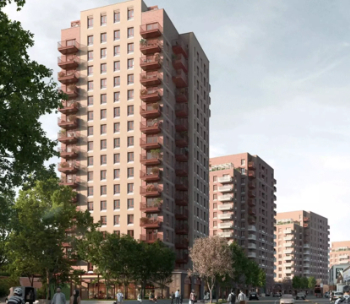Partition permanence and leases
Commercial leases normally contain a provision that if a tenant wishes to break the lease, they must remove all their property (chattels in legal parlance) from the let premises. Such provisions will often, but not always, require the removal of any alterations made to the property with the agreement of the landlord, other than any the landlord accepts need not be removed.
It could be thought that in this context, the word ‘chattels' means only non-fixed items. However, the case of Riverside Park Ltd. v NHS Property Services Ltd. (2016) shows the potential downside of failing to fully understand the implications of definitions in a lease when the time comes for it to be terminated.
The case involved a tenant which decided to break its lease on the fifth anniversary of it being granted, as was permitted under the lease terms. The tenant gave the required break notice to the landlord and largely cleared its property from the premises. The lease contained a provision that a break notice would not be valid unless the tenant gave the landlord vacant possession of the premises on or before the ‘break date’ in the lease.
However, the tenant had installed partitioning, which was demountable, and this was not removed. Nor were various other works which the tenant had undertaken to the premises during its tenancy, such as the installation of kitchen units, water pipes and an alarm system.
The landlord argued that the goods left behind were the chattels of the tenant and the break notice was therefore invalid. The tenant argued that it had only left fixtures and fittings and the notice was therefore valid as vacant possession had been given. The landlord did not agree with the tenant's interpretation as regards the need not to remove fixtures and fittings, but in the event that dispute was not important.
The High Court considered that the partitioning was for the tenant's benefit only and not intended to give any lasting value to the property. Accordingly, it was a chattel. It was significant and interfered with the landlord's right to vacant possession. As a result, the break notice was invalid.
The result for the tenant, as well as having to pay its own and the landlord's legal costs, is an obligation to pay the rent due until the next break date, or to negotiate an earlier exit with the landlord.
Of all the clauses in a lease, those concerning its termination are often the most perilous and should be fully understood and complied with.
This article was originally published by Rex Cowell here.
[edit] Find out more
[edit] Related articles on Designing Buildings Wiki
Featured articles and news
C20 Society; Buildings at Risk List 2025
10 more buildings published with updates on the past decade of buildings featured.
Boiler Upgrade Scheme and certifications consultation
Summary of government consultation, closing 11 June 2025.
Deputy editor of AT, Tim Fraser, discusses the newly formed society with its current chair, Chris Halligan MCIAT.
Barratt Lo-E passivhaus standard homes planned enmasse
With an initial 728 Lo-E homes across two sites and many more planned for the future.
Government urged to uphold Warm Homes commitment
ECA and industry bodies write to Government concerning its 13.2 billion Warm Homes manifesto commitment.
From project managers to rising stars, sustainability pioneers and more.
Places of Worship in Britain and Ireland, 1929-1990. Book review.
The emancipation of women in art.
Call for independent National Grenfell oversight mechanism
MHCLG share findings of Building Safety Inquiry in letter to Secretary of State and Minister for Building Safety.
The Architectural Technology Awards
AT Awards now open for this the sixth decade of CIAT.
50th Golden anniversary ECA Edmundson awards
Deadline for submissions Friday 30 May 2025.
The benefits of precast, off-site foundation systems
Top ten benefits of this notable innovation.
Encouraging individuals to take action saving water at home, work, and in their communities.
Takes a community to support mental health and wellbeing
The why of becoming a Mental Health Instructor explained.
Mental health awareness week 13-18 May
The theme is communities, they can provide a sense of belonging, safety, support in hard times, and a sense purpose.
Mental health support on the rise but workers still struggling
CIOB Understanding Mental Health in the Built Environment 2025 shows.
Design and construction material libraries
Material, sample, product or detail libraries a key component of any architectural design practice.
























